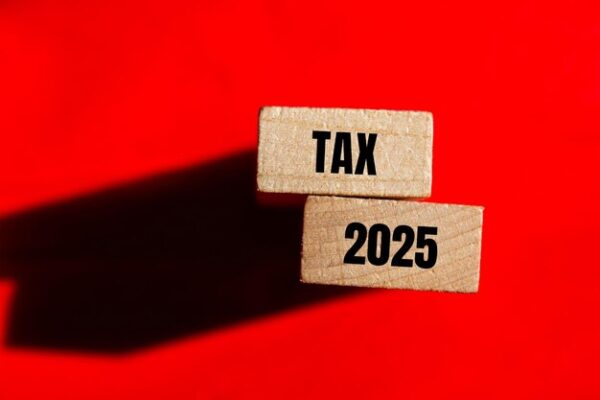Three Important IRS Tax Deadlines to Remember for June 17, 2023
As the calendar turns to June 2023, taxpayers must keep in mind several important deadlines set by the Internal Revenue Service (IRS). By understanding these dates and preparing accordingly, filers can avoid potential penalties and ensure compliance with federal tax laws. Here are three crucial IRS deadlines to remember for June 17, 2023.
Second Quarter Estimated Tax Payment (Form 1040-ES)
Taxpayers making estimated tax payments should mark their calendars for the second quarter payment deadline. This installment is due on June 15, 2023, but since this date falls on a Friday, the payment is considered timely if it’s postmarked or electronically submitted by midnight (local time) on June 17, 2023. Self-employed individuals, freelancers, and other taxpayers with income not subject to withholding should be sure to meet this deadline.
Gift Tax Returns (Form 709)
For those who have made significant gifts during the tax year, it’s essential to be aware of the annual gift tax reporting deadline. Donors must file Form 709 – United States Gift (and Generation-Skipping Transfer) Tax Return if their total gifts exceeded the annual exclusion amount ($16,000 per recipient for 2023). The deadline to file Form 709 for calendar year 2023 gifts is June 15, 2024. However, similar to the estimated tax payment deadline, the IRS grants a six-month extension, allowing filers to submit the form by December 15, 2024, as long as they pay any necessary gift tax due.
Filing an Amended Tax Return (Form 1040-X)
If you’ve discovered errors or need to make corrections on previously filed tax returns, you may be required to file an amended return. Taxpayers can use Form 1040-X to make adjustments to their income, credits, or deductions. The due date for filing an amended return for the tax year 2023 is generally three years from the original due date. In this case, that means the deadline is April 15, 2027, unless you’re requesting a refund. If a refund is involved, the deadline to file an amended return is June 15, 2023, or three years from the date the original return was filed, whichever is later.
Stay Informed and Prepare Ahead
By being aware of these crucial deadlines, taxpayers can better manage their financial obligations to the IRS and minimize potential penalties. Keeping accurate records, setting reminders, and consulting with a qualified tax professional can help ensure compliance with the various requirements.

Importance of Tax Deadlines: Understanding tax deadlines is crucial for individuals and businesses to ensure they are meeting their legal obligations and avoiding potential penalties. Failure to file or pay taxes on time can result in late fees, interest charges, or even legal action from the Internal Revenue Service (IRS).
Significant IRS Tax Deadlines in June 2023:
This outline focuses on three significant IRS tax deadlines falling on June 17, 2023:.
First Quarter Estimated Tax Payment:
On June 17, 2023:, individuals and businesses are required to make their first quarter estimated tax payment for the calendar year. Estimated taxes include income, self-employment, and alternative minimum taxes. This deadline applies to those who earn income that is not subject to withholding, such as freelancers, small business owners, or investors.
Second Quarter Extended Individual Tax Filing:
The second quarter individual tax filing deadline also falls on June 17, 2023:. This deadline applies to those who have filed for an extension to file their taxes. An extension only grants more time to file, not to pay any taxes owed.
Important Note:
It’s important to note that tax laws and deadlines are subject to change. Be sure to consult the IRS Website or a tax professional for the most current information.

Deadline 1: Quarterly Estimated Tax Payments for Individuals (Form 1040-ES)
Definition of quarterly estimated tax payments:
Quarterly estimated tax payments are taxes paid by individuals who earn income outside their regular wages. This includes freelancers, business owners, and investors whose income isn’t subject to withholding. These payments are necessary because the IRS requires taxpayers to pay their taxes as they earn them throughout the year, rather than waiting until tax filing season.
Importance of making timely payments:
Making timely quarterly estimated tax payments is crucial for individuals to avoid penalties and interest. The Underpayment Penalty is imposed on any taxpayer whose estimated tax payments for the year are less than their actual tax liability. The penalty amount depends on several factors, including the degree of underpayment and the taxpayer’s filing status. Therefore, making accurate and timely estimated tax payments can help individuals avoid unnecessary penalties and interest charges.
June 17, 2023 deadline details:
The second quarterly estimated tax payment for individuals is due on June 17, 2023. Taxpayers should pay this amount either electronically or by check and mail it to the IRS before this date. Failing to make timely payments could result in penalties, interest charges, and potential audits. To ensure compliance with tax laws and avoid unnecessary stress during tax season, individuals are encouraged to make their estimated tax payments on time.

I Deadline 2: S Corporation Shareholders’ Payroll Taxes (Form 941)
Overview of S corporations and their tax responsibilities
S corporations are a popular form of business-and-finance/business/” target=”_blank” rel=”noopener”>business-and-finance/business/” target=”_blank” rel=”noopener”>business entity for small businesses in the United States. Unlike C corporations, S corporations do not pay taxes at the corporate level on their income. Instead, the business income is passed through to the individual shareholders, who report and pay taxes on their share of the income on their personal tax returns (Form 1040). This is often referred to as “pass-through” taxation and can result in significant tax savings for business owners.
These entities do not file corporate income taxes, but their shareholders pay taxes on their share of income
However, S corporations and their shareholders do have specific tax responsibilities. One such responsibility is the payment of employment taxes. Although the income is not subject to corporate taxation, FICA (Federal Insurance Contributions Act) taxes, Medicare taxes, and income tax withheld from employees’ wages are still required to be paid.
June 17, 2023 deadline details
Employers must deposit the first and second quarter Form 941 payroll tax liability
S corporation shareholders and employers must adhere to various deadlines for depositing their employment taxes. The most immediate deadline is June 17, 2023, which applies to the first and second quarter Form 941 payroll tax liabilities. These taxes include both the employer’s and employee’s shares of FICA (Social Security) and Medicare taxes, as well as any income tax withheld from employees’ wages.
Employers can make payments electronically or through the Electronic Federal Tax Payment System (EFTPS)
Employers have several options for making these quarterly tax payments. They can pay electronically using the Electronic Federal Tax Payment System (EFTPS), or they can write checks and mail them to the appropriate IRS address. It’s crucial for S corporations and their shareholders to keep accurate records of these payments, as failure to meet the deadlines can result in penalties and interest charges.

Deadline 3:: Exempt Organization Returns (Form 990-N)
Description of Form 990-N and its Purpose
Form 990-N, also known as the e-Postcard for Tax Exempts or Electronic Notice (e-Notice) for Small Charities, is a significant reporting requirement for tax-exempt organizations. This form is used to report their annual financial information and activities to the Internal Revenue Service (IRS). It was introduced as a simplified version of the traditional Form 990 series, designed specifically for small organizations with annual gross receipts under $50,000. By filing Form 990-N, these exempt entities can confirm their tax-exempt status and maintain transparency with the IRS and the public.
June 17, 2023 Deadline Details
It’s essential for small tax-exempt organizations to be aware of the annual reporting deadlines. June 17, 2023, marks the deadline for these organizations to file their Form 990-N. Those with annual gross receipts under $50,000 are required to comply with this requirement. Organizations can choose either to
e-file the form
or submit it via
paper
. However, the IRS strongly encourages and prefers the use of electronic filings. Filing electronically can offer several advantages, such as faster processing times, reduced paperwork, and the convenience of doing so from anywhere with an internet connection. By adhering to this deadline, organizations can maintain their tax-exempt status and avoid potential penalties or complications.

Conclusion
A. In this outline, we have discussed three crucial deadlines related to tax obligations that every individual and business owner must keep in mind:
Filing Deadline for Individual Tax Returns
,
Quarterly Estimated Tax Payments
, and
Business Tax Filing Deadline
. These deadlines are essential for avoiding penalties, interest charges, and potential legal issues.
It is important to mark these dates on your calendars and set reminders to ensure that you meet your tax obligations on time. Procrastination or forgetting these deadlines can result in unwanted financial consequences, such as late payment penalties, increased interest rates, and potential legal actions.
Filing Deadline for Individual Tax Returns: The deadline for filing individual tax returns is typically April 15th of each year. However, this date may change depending on weekends and holidays.
Quarterly Estimated Tax Payments: If you are self-employed or a business owner, you may be required to make quarterly estimated tax payments throughout the year. These payments are due on April 15th, June 15th, September 15th, and January 15th of each year.
Business Tax Filing Deadline: The deadline for filing business tax returns varies depending on the business structure and size. For most businesses, the deadline is March 15th or April 15th, depending on the entity type.
By staying informed about these deadlines and planning accordingly, you can avoid unnecessary financial stress and ensure that your tax obligations are met on time.
Remember: Tax deadlines can be confusing, but ignoring them is not an option. Be sure to stay informed and take action to meet your tax obligations on time.





